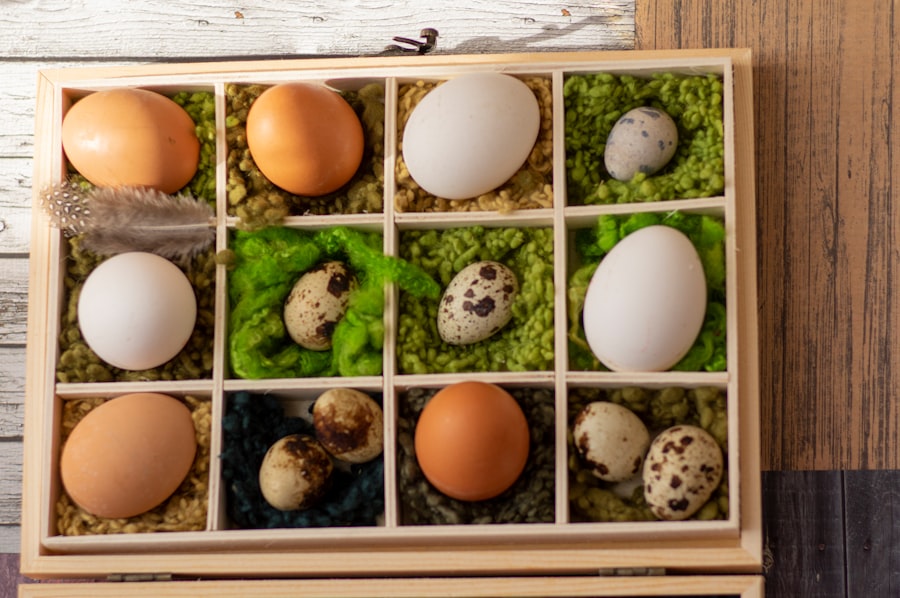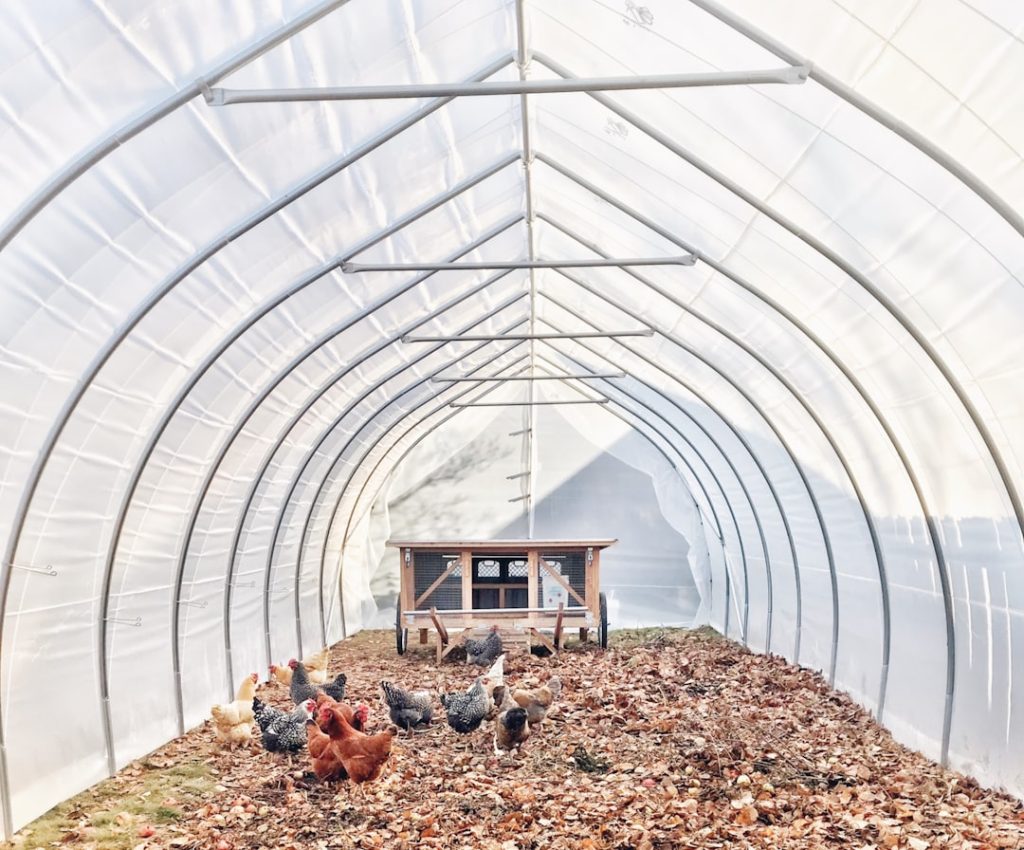Keeping chickens is a beneficial activity suitable for individuals of various ages, regardless of their living environment. This practice offers several advantages, including the production of fresh eggs and meat, as well as potential companionship. Chickens are generally low-maintenance animals that can integrate well into many households.
They possess natural pest control abilities, helping to reduce insect populations in yards and gardens. Additionally, raising chickens can serve as an educational tool for children, teaching them about responsibility and life cycles. Chicken-keeping aligns with sustainable and eco-friendly practices.
It can contribute to reducing one’s carbon footprint through local food production and the creation of natural fertilizer. Chickens efficiently convert kitchen scraps into high-quality compost, thereby reducing food waste. This activity also promotes a connection with nature and can enhance biodiversity within local ecosystems.
In summary, raising chickens can provide numerous benefits for individuals, families, and the environment.
Table of Contents
- 1 Setting Up a Chicken Coop
- 2 Feeding and Caring for Chickens
- 3 Dealing with Health and Safety Issues
- 4 Managing Chicken Behavior
- 5 Harvesting Eggs and Meat
- 6 Is Keeping Chickens Hard?
- 7 FAQs
- 7.1 What are the basic requirements for keeping chickens?
- 7.2 Is it difficult to build a chicken coop?
- 7.3 What do chickens eat and is it hard to provide their food?
- 7.4 How much time does it take to care for chickens on a daily basis?
- 7.5 What are the common health issues in chickens and how hard are they to manage?
- 7.6 Are there any legal restrictions or regulations for keeping chickens?
Key Takeaways
- Keeping chickens can be a rewarding and enjoyable experience for both beginners and experienced poultry keepers.
- Setting up a chicken coop requires careful planning and consideration of space, ventilation, and predator protection.
- Feeding and caring for chickens involves providing a balanced diet, clean water, and regular health checks.
- Dealing with health and safety issues requires knowledge of common poultry diseases and proper sanitation practices.
- Managing chicken behavior involves understanding their natural instincts and providing appropriate enrichment and socialization.
Setting Up a Chicken Coop
Key Features of a Chicken Coop
The coop should be spacious enough to allow the chickens to move around freely and have access to nesting boxes for laying eggs. It should also be secure from predators such as foxes, raccoons, and birds of prey. The coop should also have proper ventilation to ensure good air circulation and prevent the buildup of ammonia from chicken droppings.
Additional Essentials for a Comfortable Coop
Additionally, the coop should be equipped with roosting bars for the chickens to perch on at night, as well as a secure door to keep them safe from predators. It’s also important to provide bedding such as straw or wood shavings to keep the coop clean and comfortable for the chickens.
Easy Maintenance and Access
Lastly, the coop should have easy access for cleaning and collecting eggs. Overall, a well-designed chicken coop is essential for the health and well-being of your flock.
Feeding and Caring for Chickens

Feeding and caring for chickens is an important aspect of keeping them healthy and productive. Chickens require a balanced diet that includes a mix of grains, protein, vitamins, and minerals. A commercial chicken feed that is specifically formulated for laying hens is a good option for providing the necessary nutrients.
In addition to feed, chickens also enjoy eating kitchen scraps such as vegetable peels, fruit rinds, and leftover bread. It’s important to avoid feeding them foods that are toxic to chickens, such as avocado, chocolate, and raw beans. Chickens also need access to fresh water at all times, especially during hot weather.
It’s important to regularly clean and refill their water containers to prevent the spread of bacteria and disease. In addition to food and water, chickens also need regular care such as cleaning the coop, checking for signs of illness, and providing them with dust baths to keep their feathers clean and free of parasites. Overall, providing proper nutrition and care is essential for keeping chickens healthy and happy.
Dealing with Health and Safety Issues
Like any other animal, chickens are susceptible to various health issues that can affect their well-being. Common health problems in chickens include respiratory infections, parasites, and injuries. It’s important to regularly inspect your flock for signs of illness or injury and seek veterinary care if necessary.
Additionally, practicing good biosecurity measures can help prevent the spread of diseases among your flock. Another important aspect of keeping chickens is ensuring their safety from predators. Predators such as foxes, raccoons, and birds of prey can pose a threat to your flock.
It’s important to secure the coop with sturdy fencing and locks to prevent predators from gaining access. Additionally, providing a safe outdoor area for the chickens to roam during the day can help reduce the risk of predator attacks. Overall, being proactive about health and safety issues is crucial for maintaining a healthy and thriving flock.
Managing Chicken Behavior
Understanding and managing chicken behavior is essential for maintaining a harmonious flock. Chickens have their own social hierarchy and communication system, which can sometimes lead to aggression or bullying within the flock. It’s important to provide enough space and resources for all the chickens to prevent competition and conflict.
Additionally, introducing new chickens to an existing flock should be done gradually to minimize stress and aggression. Chickens also have natural instincts for foraging, dust bathing, and roosting. Providing opportunities for these behaviors can help keep the chickens mentally stimulated and reduce boredom-related issues such as feather pecking.
Additionally, spending time with your chickens can help build trust and strengthen your bond with them. Overall, understanding and managing chicken behavior is important for creating a peaceful and contented flock.
Harvesting Eggs and Meat

Fresh Eggs from the Nesting Box
Collecting eggs from the nesting boxes should be done daily to ensure they are clean and fresh. It’s important to handle the eggs carefully to prevent breakage and store them in a cool place until use.
Maintaining Good Egg Hygiene
Additionally, it’s important to regularly clean the nesting boxes to maintain good egg hygiene. This helps to prevent the spread of disease and keeps the eggs clean and fresh.
Humane Meat Harvesting Practices
If you are raising chickens for meat, it’s important to follow ethical and humane practices when harvesting them. This includes providing a stress-free environment for the chickens before processing them and using humane slaughter methods. It’s also important to properly store and handle the meat to prevent contamination and spoilage.
Sustainable Food Options
Overall, harvesting eggs and meat from your flock can provide you with high-quality, sustainable food options. By following these best practices, you can enjoy fresh, healthy food while also promoting animal welfare and environmental sustainability.
Is Keeping Chickens Hard?
In conclusion, keeping chickens can be a rewarding and enjoyable experience that provides numerous benefits such as fresh eggs, meat, pest control, and companionship. While there are certain responsibilities involved in caring for chickens such as providing proper nutrition, maintaining a clean coop, and addressing health issues, it can be a manageable task with the right knowledge and resources. By understanding the needs of your flock, practicing good husbandry practices, and being proactive about health and safety issues, you can create a thriving environment for your chickens.
Overall, keeping chickens is not necessarily hard but does require dedication, time, and effort. With proper planning and care, raising chickens can be a fulfilling endeavor that brings joy and sustainability to your life. Whether you are new to keeping chickens or have years of experience, there is always something new to learn about these fascinating creatures.
So if you’re considering keeping chickens, don’t be discouraged by the potential challenges – the rewards far outweigh the efforts involved in caring for these wonderful animals.
If you’re considering keeping chickens, you may be wondering if it’s hard to do. According to a recent article on Poultry Wizard, “Garden Chicken Coop Design Tips,” keeping chickens can be a rewarding experience, but it does require some effort and planning. The article provides helpful tips for creating a suitable environment for your chickens, including advice on coop design and maintenance. For more information, you can read the full article here.
FAQs
What are the basic requirements for keeping chickens?
Basic requirements for keeping chickens include a suitable coop or housing, access to fresh water, proper nutrition, and protection from predators.
Is it difficult to build a chicken coop?
Building a chicken coop can be a DIY project for those with basic carpentry skills. There are also pre-made coop options available for purchase.
What do chickens eat and is it hard to provide their food?
Chickens eat a variety of foods including commercial feed, grains, fruits, and vegetables. Providing their food is not difficult and can be easily managed with proper planning.
How much time does it take to care for chickens on a daily basis?
Caring for chickens typically requires about 15-30 minutes per day for tasks such as feeding, watering, and collecting eggs. Additional time may be needed for coop maintenance and cleaning.
What are the common health issues in chickens and how hard are they to manage?
Common health issues in chickens include parasites, respiratory infections, and injuries. These can be managed with proper hygiene, regular health checks, and access to veterinary care if needed.
Are there any legal restrictions or regulations for keeping chickens?
There may be local regulations or zoning laws that dictate the number of chickens allowed, coop placement, and other requirements. It’s important to research and comply with these regulations.
Meet Walter, the feathered-friend fanatic of Florida! Nestled in the sunshine state, Walter struts through life with his feathered companions, clucking his way to happiness. With a coop that’s fancier than a five-star hotel, he’s the Don Juan of the chicken world. When he’s not teaching his hens to do the cha-cha, you’ll find him in a heated debate with his prized rooster, Sir Clucks-a-Lot. Walter’s poultry passion is no yolk; he’s the sunny-side-up guy you never knew you needed in your flock of friends!







